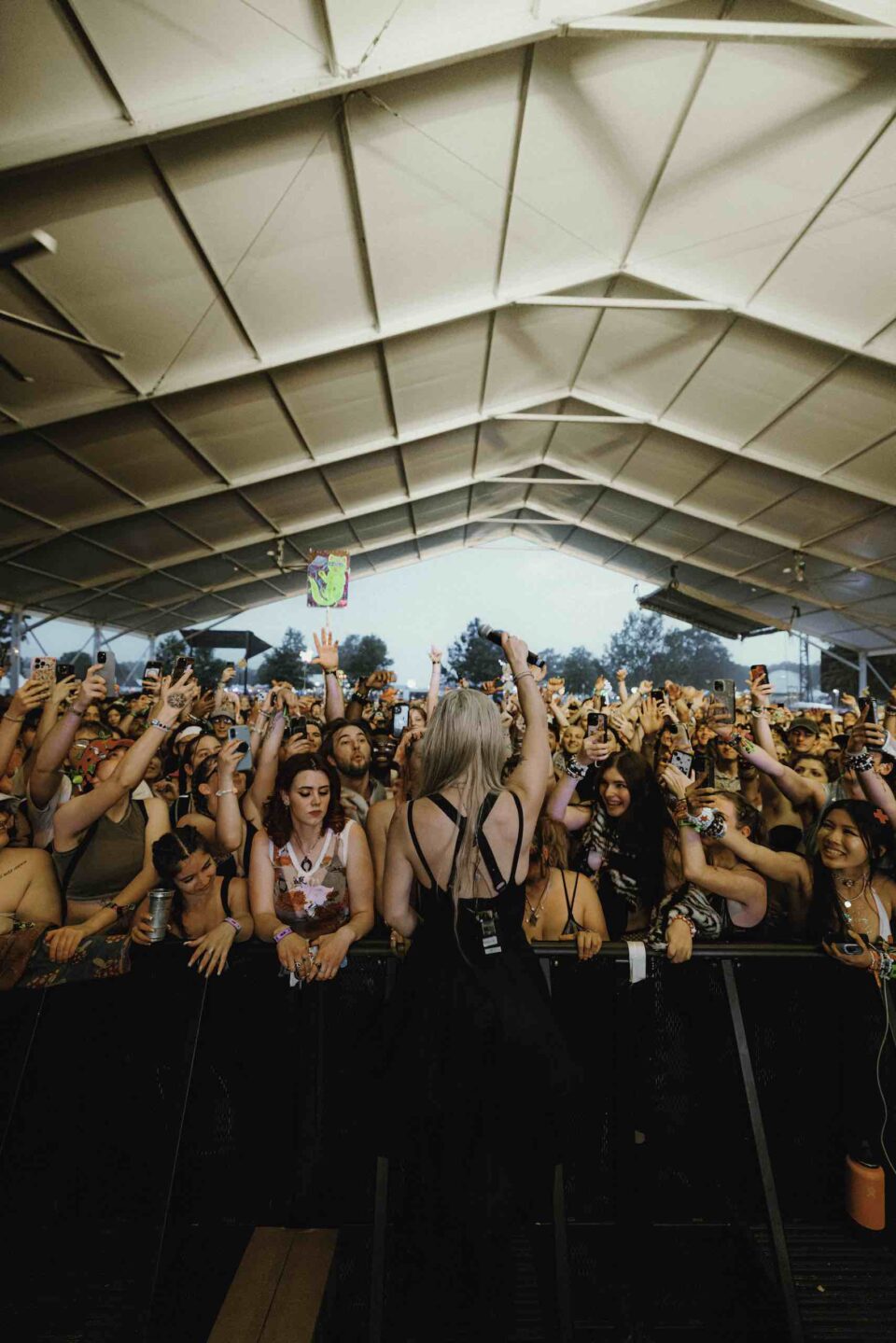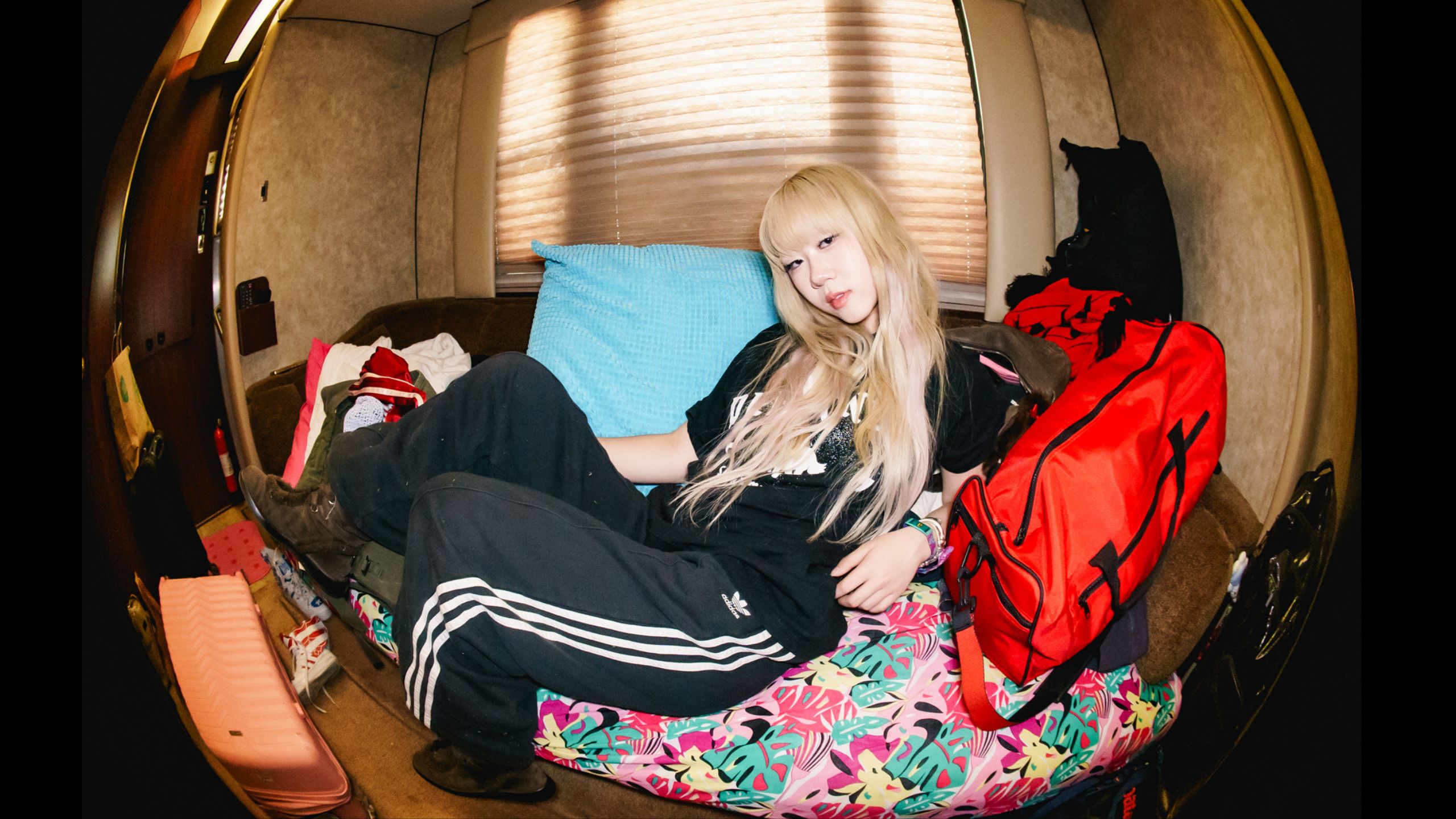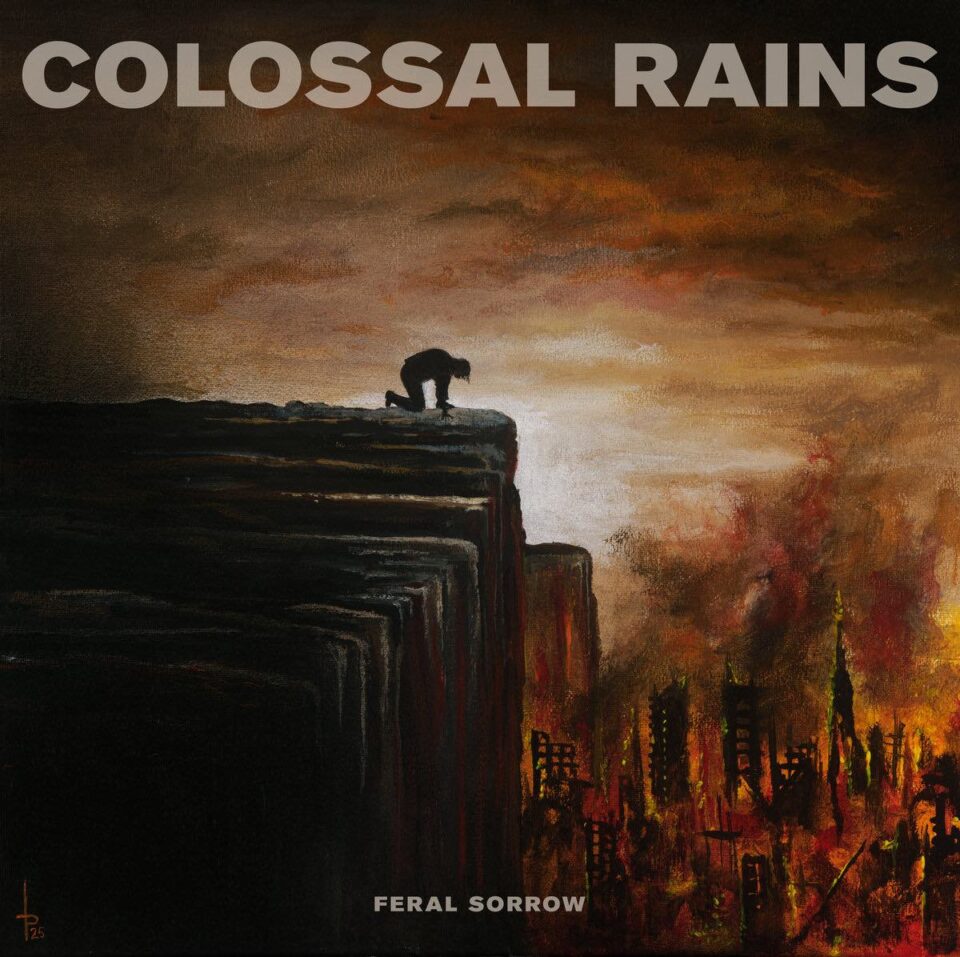In 2023, Natalie Lu had just released her debut single “Your Face” while studying computer science at San Francisco State University. Just two and a half years later, she’s built a massive cult following as Wisp, performed at Coachella, and received co-signs from Deftones, Korn, and even Beyoncé. Following a whirlwind few years, she’s now set to fully showcase her artistry this week with her debut album, If Not Winter. The Bay Area–reared artist aims to take the listener on a journey into her distinct medieval fantasy world with a collection of songs she considers more vulnerable and experimental than her earliest singles.
Wisp is also set to embark on a global tour in support of the record, which includes stadium shows supporting Korn, System of a Down, Deftones, and Avenged Sevenfold, as she continues to take nu-gaze to new heights. Ahead of all of this, we caught up with the songwriter to discuss the journey that led her here.

What did you want to express with your debut album?
I feel like debut albums are scary to tackle because you want to showcase what you’re capable of. Debut albums also set the grounds for your future releases and what people can expect from you. I wanted to make sure my album didn’t just include a sound that people were used to hearing from me, but also elements that I wanted to include in my music that I might discover even more in the future. I wanted to be as experimental as I could and just showcase the kind of music that I like listening to and how that reflects into the music I make myself.
You have a love for mythology and fairytales—why did you want to weave this into your songwriting?
[Building] visual worlds around Wisp is one of my favorite parts of making music because I’m able to show people what I think my music looks and feels like. Getting to be a creative director on music videos and bringing this musical fantasy world to life is really cool. I describe it as me bringing my childhood dreams into reality, because all of these things that you see in my videos are things that I grew up loving—like princesses and fairytales and mermaids. I get to live out my fantasies and connect my music to it in a very special way.
What sparked this interest?
I think it was a mixture of movies and books that I read growing up. I had this really big Greek mythology book that my mom gave to me when I was six or seven, and I remember flipping through it and loving the visuals of the Greek gods and goddesses. I feel like doing Harry Potter marathons with my dad, or watching him watch Lord of the Rings—I wasn’t that interested, but loved the visuals so much—definitely stuck with me. And getting to incorporate those medieval elements, whether it’s the architecture or the way the characters dress, is really fun for me.
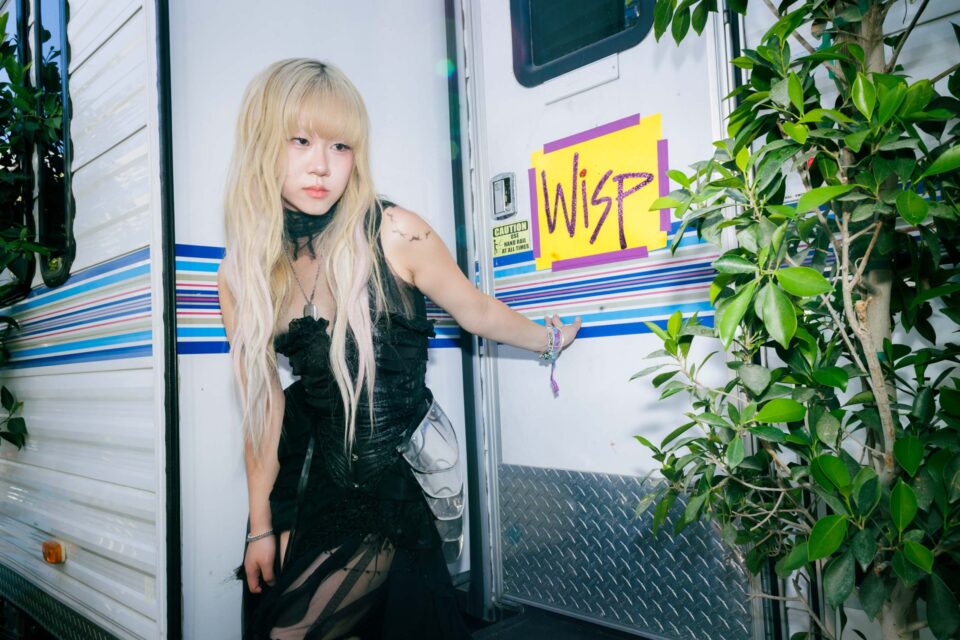
Wisp at Coachella 2025 / photo by Mallory Turner
“I wanted to be as experimental as I could and just showcase the kind of music that I like listening to and how that reflects into the music I make myself.”
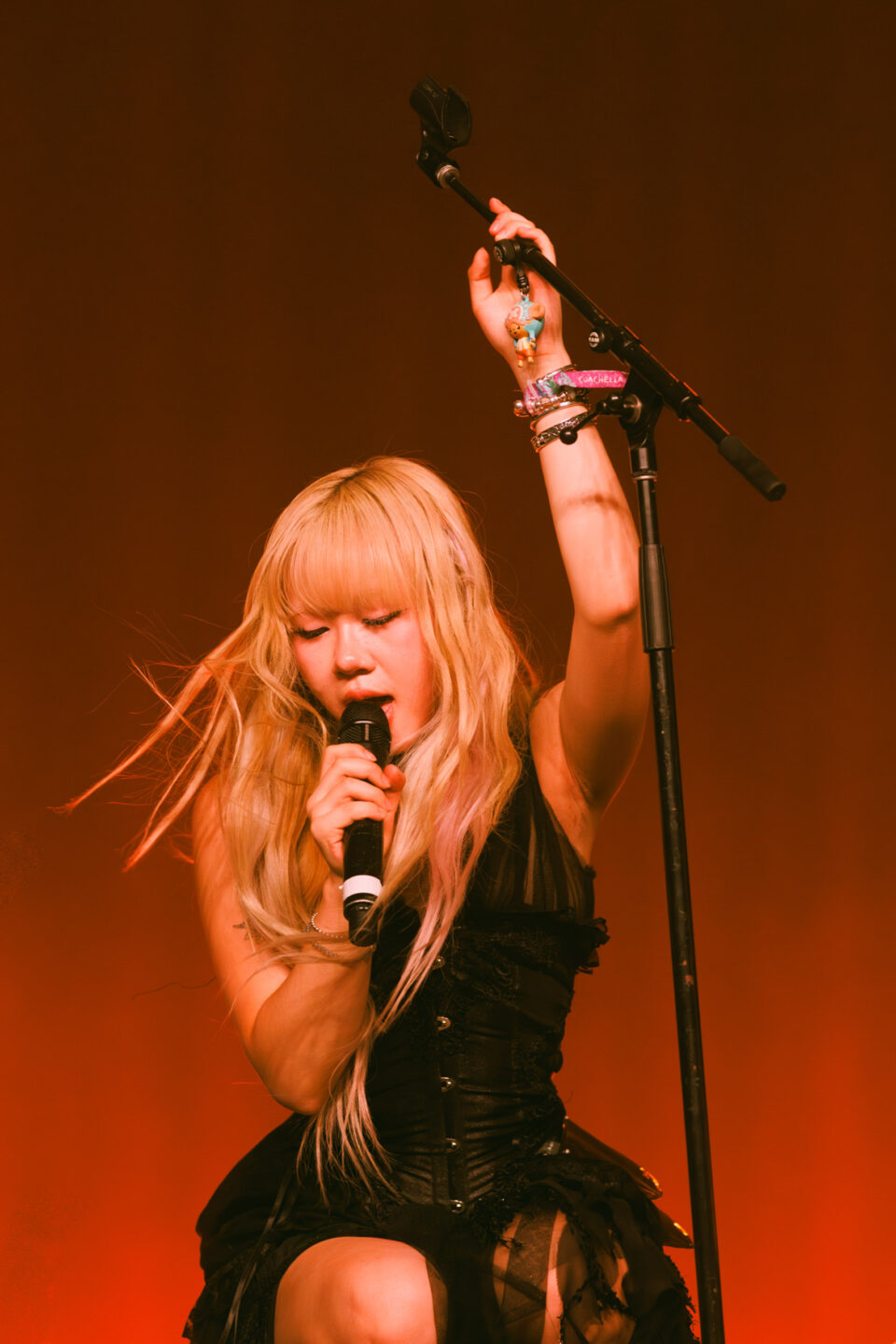
You describe your single “Breathe Onto Me” as a “fun play on affection.” Does this feel more natural to write than the more pessimistic love songs?
I wrote [“Breathe Onto Me”] almost two years ago, around the time I released “See You Soon” and “Once Then We’ll Be Free.” I was writing more simple and broad lyrics—not that I think they’re less in value than what I write nowadays, but I think the music I’ve been making for this album has so much more depth and vulnerability to it. But “Breathe Onto Me” is fun to include on the album because it’s a mixture between my old sound and new sound, whether it’s how I used to write lyrics and bringing in a new sound on the instrumental side or vice versa. I feel like the lyrics are simple and fun, but sometimes that’s needed as a break, especially when the album covers such deep topics.
What do you think has changed in your writing style to show this vulnerability?
I just started to care more about what I wanted to say. Back then, I was really adamant about making good music, obviously, and I was very hard on myself whenever I’d release something. I felt that the stuff I was releasing still wasn’t good enough. During the whole process of making the album, I’ve been exorcising everything I can out of me to not feel that way anymore. A big part of that was writing better lyrics and finding my own voice in my own writing style and making sure what I was saying lyrically was a good representation of myself.
Do you think that the fantasy element of your songwriting has helped with that process?
Yeah, I think so. I also think that I’m not necessarily scared to put 100 percent of myself into a song, because if I’m writing about someone and they figure out it’s about them, then that’s totally fine with me. If I’m writing about a very specific experience in my life, as long as I have this outlet of music to express how I feel and the things that I go through, then I don’t mind if other people listen to it. I’m honestly grateful that I get to share those sides of me with other people, too.
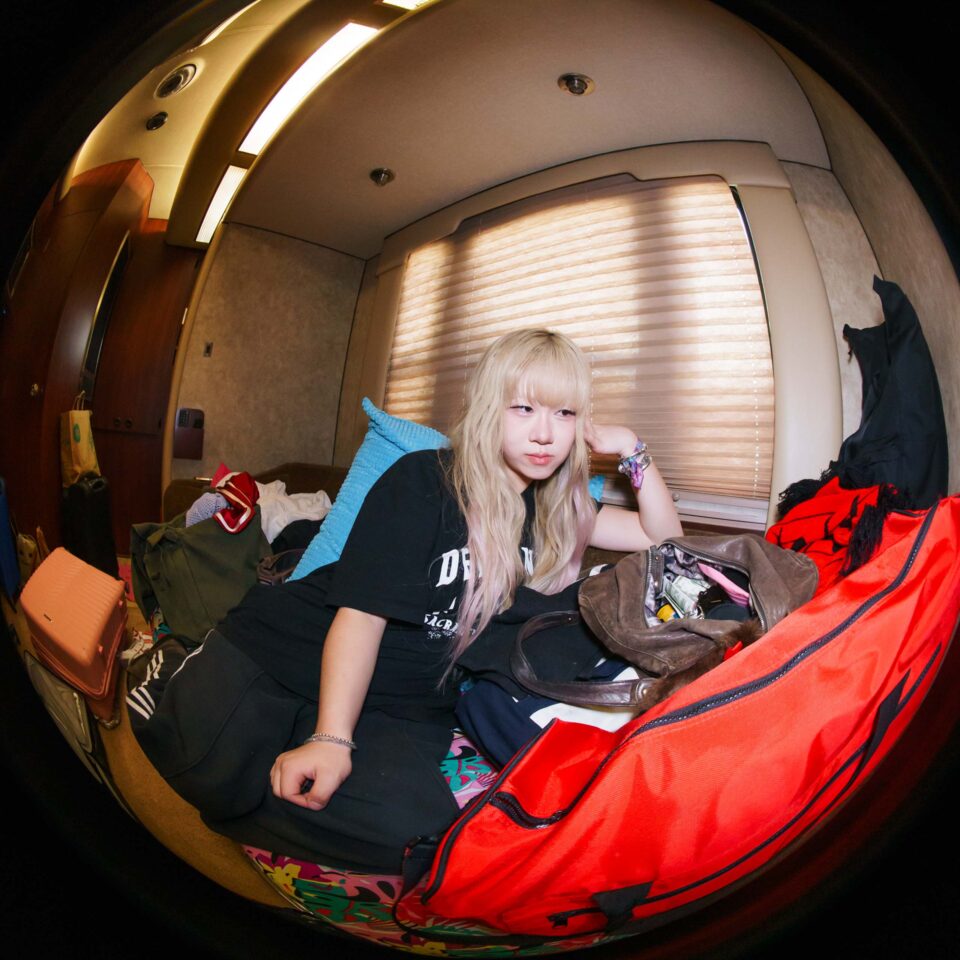
Wisp at Coachella 2025 / photo by Mallory Turner
Did the viral success of “Your Face” take you by surprise?
When I wrote “Your Face,” it was honestly just for fun. I was in college at the time and I didn’t have any intention of pursuing music, even though I loved playing my instruments. When I made “Your Face,” I’d sent it to a couple of friends and they said, “Wow, this is pretty good! You should post it somewhere.” One night when I was scrolling TikTok, I saw that Juggler—another band that’s based in LA—had posted a carousel with their song, and I’d never seen people promote music on TikTok like this. I decided to post it to the same carousel and overnight it just started to gain traction. I posted more and more and when people found it, I was like, “I can really see myself doing this.” It encouraged me to write more songs. I found so much joy and meaning in making these tracks. It got me really excited. It felt that I’d naturally found my calling.
The success of “Your Face” changed the direction of your life, as you were approached by labels to pursue a music career. Was this difficult at first?
It was definitely a lot to process. A really big part of the difficulty in that, as well, was moving away from my parents. I’d originally chosen to go to a college close to home so I could be close to them, and I felt like moving out and pursuing music was me getting that college experience just in a completely different way. Moving to LA alone was definitely very isolating and daunting, because I didn’t get the luxury of being on a college campus and meeting people organically. Meeting friends was something that took a lot of time for me. Getting to have a music community and building a family around that was super special and important to me. All of those people I met in the first year of making music are still in my life right now. It’s been getting easier, and I’m finally finding a place in LA.
Did you find it difficult to adjust to the newfound spotlight as you pretty much became a viral hit overnight?
I feel like I’ve always been used to performing publicly, because I did ballet growing up and I was also classically trained in violin, so I was in an orchestra and did performances for my music school. Being public in the sense that you have a fanbase seems a bit scary on paper, but it’s been so lovely getting to meet my fans in-person. Building this connection between us isn’t something that I would trade for anything, and I think one of my favorite parts of making music is getting to meet people and really understand what impact I have on them—and the impact that they have on me.
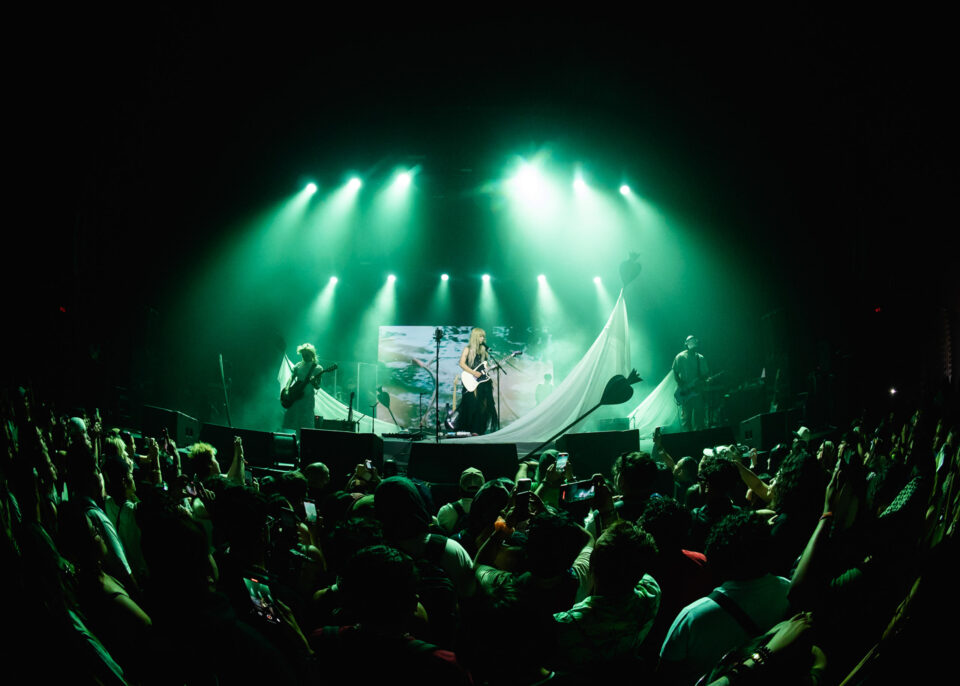
“[Building] visual worlds around Wisp is one of my favorite parts of making music, because I’m able to show people what I think my music looks and feels like.”
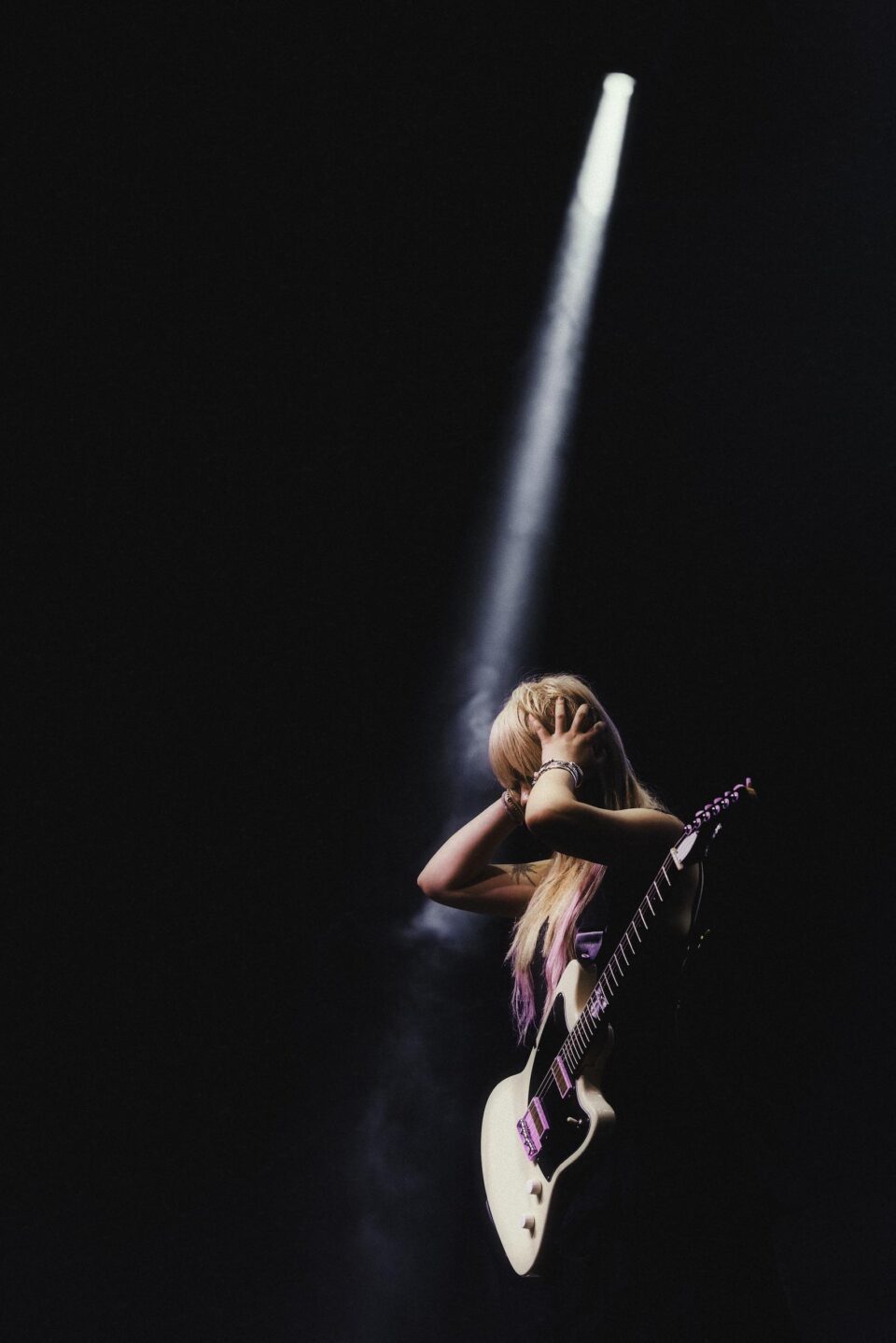
Do you think that you’ll grow that connection with your fans even more with your album?
Yeah! Originally, I was trying to keep a more mysterious image, and I think that was because I was scared of the spotlight and I didn’t really know how people would perceive me, or how I wanted to be perceived as Wisp. But as time passed, I got more comfortable showing my face online and I realized having this personal connection with people was very important to my image and how I wanted to represent myself.
You’ll be supporting System of a Down, Korn, Deftones, and Avenged Sevenfold during their stadium tour. Are these your first stadium shows?
Yeah, and I honestly don’t know what to expect. Because we’re the first of four [acts to play], I’m expecting people to file into the arena eating hot dogs and popcorn. I think it’ll be chill. It sounds like a very big and scary thing, but when we’re on stage and performing, it’ll feel more calm.
What does it mean to you to support these huge acts?
I grew up listening to their music so it’s a really full-circle moment—especially Korn. I’ve been such a big fan of them for a long time. I know that I’m opening for them, but I’m still questioning if they know I even exist, because they’re so big and influential. I’m really excited and I hope that I get to at least say hi to them in passing and just have a little chat with them. FL
